
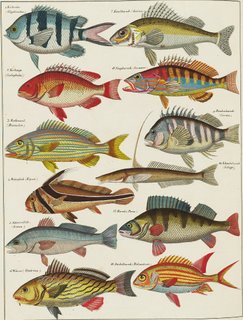
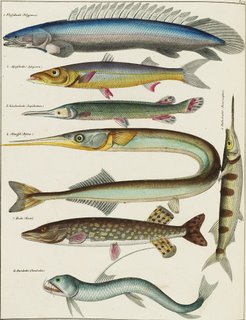
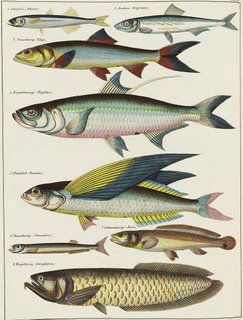
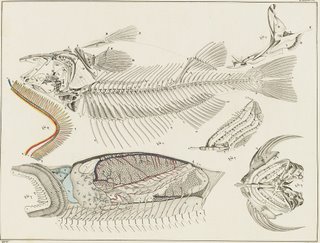
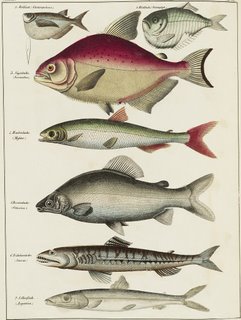
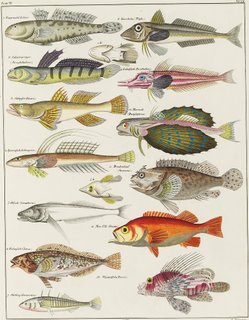
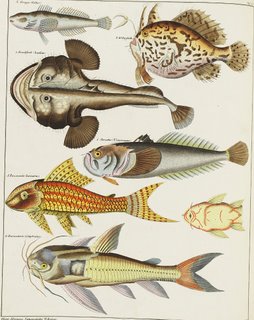
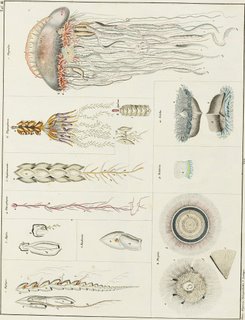
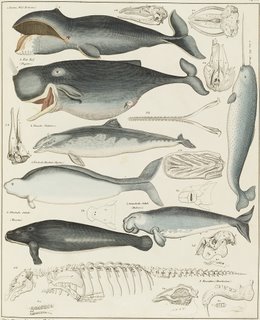
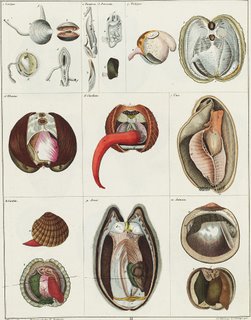
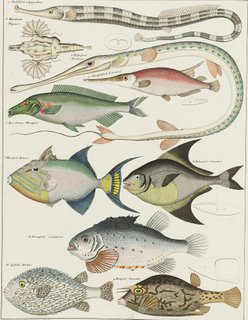
[click images for much larger versions]
Lorenz Oken [Ockenfuss]
(1779-1851) studied medicine and natural science and held a number of university professorships. He is renowned as a 'transcendental naturalist' and first achieved fame with publication of '
Grundriss der Naturphilosophie' in 1802.
There is quite a bit of information about him on the internet but I'm afraid most of it soared over my head and/or is so poorly written as to preclude any decent understanding. Suffice it to say that Oken had mystical beliefs about the natural world that seem to have been derived from Kantian philosophy.
Oken believed that an "organism is none other than a combination of all the universe's activities within a single individual body" and that "world and organism are one in kind, and do not stand merely in harmony with each other."
This philosophy led him to classify the natural world from a morphological basis wherein he considered (prefiguring the cell theory
[1839]) animals to be an agglomeration of 'infusorial masses or vescicles'. He placed all animals into classes: Dermatazoa (invertebrates); Glossozoa (fish - tongue first appears); Rhinozoa (reptiles - inhales air); Otozoa (birds - ears are formed); Opthalmazoa (mammals - eyes and other senses are complete).
All that has little to do with either the fantastic images above nor the way they are arranged in the book:
'Oken's Allgemeine Naturgeschichte' ('Oken's German Natural History') which was published in 1843 and is online at the HAAB website of the Foundation of Weimar Classics.
I've only posted the marine species but there are a LOT more plant, insect and animal illustrations available. I'll probably post some more I downloaded later. Although the above images are large, they are still scaled down to an extent versus what's available at the HAAB site.
Many thanks to
Ralf Zeigermann from The Cartoonist for pointing out this wonderful book.


















































